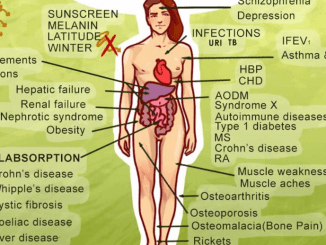The untimely death of 19-year-old Livia Wilson has shaken many, shedding light on the dangers of sharing drinks and straws in social gatherings. Livia, who attended Manchester’s Parklife Festival in 2022, returned home feeling slightly unwell, only to succumb to a deadly infection a few days later. Her story underscores the risks associated with infections like meningitis B, which can spread through shared items and close contact. Let’s delve into the signs, symptoms, and prevention strategies of such infections, particularly focusing on meningitis.

19-year-old Livia Wilson died after contracting meningitis B. (SWNS)
Understanding Meningitis: A Silent Threat
Meningitis is a severe infection that affects the membranes surrounding the brain and spinal cord. This infection can strike suddenly and progress rapidly, leading to life-threatening complications if not addressed promptly. The bacteria responsible for meningitis can spread through mucus and saliva, making everyday actions like sneezing, coughing, kissing, or sharing straws potential avenues for transmission. Livia’s tragic case is a powerful reminder that the simplest acts can carry hidden dangers.
How Does Meningitis Spread?
One alarming fact about meningitis is that it’s often carried by people who aren’t symptomatic, allowing the bacteria to pass silently from one person to another. Here’s how it spreads:
- Through Respiratory Secretions: Sneezing, coughing, and close physical contact can spread the bacteria.
- Sharing Items: Using the same straw, glass, or utensils as an infected individual can transmit the bacteria.
- Kissing and Close Contact: Meningitis can spread through intimate contact, even from someone who shows no symptoms.
Given its ability to spread quietly, meningitis remains a particularly insidious infection, and young people at social events are especially vulnerable.
Signs and Symptoms of Meningitis
Recognizing meningitis in its early stages can be challenging, as the symptoms can resemble other, less severe conditions. However, there are key warning signs to look out for that should prompt immediate medical attention:
- Skin Rash: A red or purple rash that appears as tiny pinpricks on the skin is a hallmark symptom of meningitis. These spots can quickly spread, and if they don’t disappear when pressed with a glass, they may indicate sepsis.
- Headache and Confusion: Sudden, severe headaches coupled with confusion are common indicators of meningitis.
- High Fever and Chills: The body’s natural immune response often includes a spike in temperature, signaling that something is wrong.
- Cold Hands and Feet: While unusual, this symptom can signal a serious infection.
- Muscle and Joint Pain: Aches and pains in the body, especially in the muscles and joints, are often reported.
- Neck Stiffness and Sensitivity to Light: These are classic symptoms of meningitis, particularly in adults and teenagers.
It’s important to note that not all symptoms may be present, and they can appear in any order. The severity of the infection means that waiting for multiple symptoms to appear can be a fatal mistake.
Signs of Meningitis in Infants and Young Children
In children and infants, meningitis can present differently. Parents and caregivers should be aware of the following signs:
- Unusual Crying: A high-pitched, irritable cry is common among infants with meningitis.
- Stiff or Floppy Body: The infant’s body may become unusually stiff or floppy, indicating severe discomfort.
- Refusal to Eat: Babies suffering from meningitis often refuse food or drink.
- Bulging Fontanelle: A soft, bulging spot on top of an infant’s head can be a serious indicator.
Early recognition is critical, as meningitis can escalate rapidly, leading to seizures, brain damage, and even death.

In 2015 a meningitis vaccine for babies was introduced. (Frank Bienewald/LightRocket via Getty Images
What to Do If You Suspect Meningitis
If you or someone you know exhibits symptoms of meningitis, don’t wait for symptoms to worsen. Here’s what you should do:
- Seek Immediate Medical Help: Call 999 or go to the nearest emergency department. Meningitis can worsen quickly, so early intervention is crucial.
- Trust Your Instincts: Meningitis symptoms can mimic less severe illnesses. If you feel something is seriously wrong, act immediately.
- Inform Medical Staff About Your Concerns: Clearly state the symptoms and your suspicion of meningitis so the medical team can prioritize testing and treatment.
The NHS advises people to “trust their instincts” because timely treatment is critical. Antibiotics and supportive care can save lives, but delays can lead to tragic consequences.
Long-Term Effects of Meningitis
For those who survive meningitis, life can change dramatically. The infection can leave lasting physical and mental impacts, including:
- Hearing or Vision Loss: Permanent sensory loss is a common consequence of meningitis.
- Cognitive Impairments: Memory, coordination, and learning abilities can all be affected.
- Epilepsy and Seizures: Meningitis can damage brain tissue, leading to recurring seizures.
- Kidney Damage: In some cases, the infection affects kidney function.
- Limb Amputation: Severe cases of meningitis may require amputation to prevent the spread of infection.
These potential outcomes underscore the need for quick medical intervention and careful monitoring during recovery.

Prevention: Simple Steps to Avoid Meningitis
While meningitis can be deadly, there are preventative measures you can take to reduce the risk of infection:
- Vaccination: The meningitis vaccine is the most effective way to prevent certain types of the infection.
- Good Hygiene Practices: Avoid sharing drinks, straws, or utensils, especially in crowded or social settings.
- Stay Informed: If meningitis cases are reported in your area, take extra precautions.
- Limit Close Contact in High-Risk Situations: Festivals and other gatherings can increase the risk of exposure, so be mindful of whom you’re sharing items with.
Livia’s story is a heartbreaking example of the tragic outcomes that can follow when infections go undetected. Her mother, Alison Goude, now raises awareness about meningitis B and the dangers of sharing straws or drinks to prevent other families from enduring the same loss.
Conclusion
Meningitis remains a dangerous infection that can silently spread through close contact and shared items. The sudden passing of young Livia Wilson is a powerful reminder to recognize the risks, especially in social settings like festivals and gatherings where sharing is common. Recognizing symptoms early, trusting instincts, and taking simple preventive measures can make a world of difference in avoiding infection. While Livia’s story is tragic, her legacy can help others stay vigilant and informed about the invisible dangers we often overlook.


